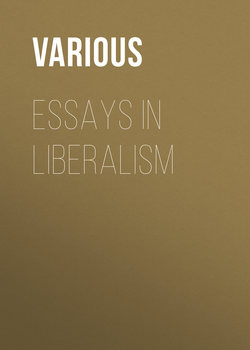Читать книгу Essays in Liberalism - Various - Страница 19
INTERNATIONAL DISARMAMENT
By Major-General Sir Frederick Maurice, K.C.M.G., C.B
The League’s Commission
ОглавлениеThe first step was to remedy an oversight in the machinery, and that was done at the first meeting of the Assembly. The first meeting of the Assembly created a temporary mixed commission on armaments, which was composed of persons of recognised competence in political, social, and economic matters. It consisted of six members of the old Permanent Commission, and in addition a number of statesmen, employers, and representatives of labour. This body started to tackle this grave question. Before it began the first Assembly of the League had suggested one line of approach—that there should be an agreement to limit expenditure; that an attempt should be made to limit armaments by limiting budgets; and nations were asked to agree that they would not exceed in the two years following the acceptance of the resolution the budgeted expenditure on armaments of the current year.
That proposal did not meet with great success. It was turned down by seven Powers, notably by France and Spain. On the whole, I think France and Spain and the other Powers had some reason on their side, because it is not possible to approach this problem solely from the financial standpoint. You cannot get a financial common denominator and apply it to armaments. The varying costs of a soldier in Europe and in Japan have no relation to each other. The cost of a voluntary soldier in Great Britain has no relation to the cost of a conscript on the Continent. Therefore, that line of approach, when applied too broadly, is not fruitful. I think myself it is quite possible that you may be able to apply financial limitations to the question of material, the construction of guns and other weapons of war, because the cost of these things in foreign countries tends much more to a common level. I think this is a possible line of approach, but to try to make a reduction of armaments by reducing budgets on a wholesale scale I do not think will lead us anywhere at all. I may safely say that for the present that line of approach has been abandoned.
The Temporary Mixed Commission got to work, and in its first year, frankly, I cannot say it did very much. It concerned itself very largely with the accumulation of information and the collection of statistics, bearing rather the same relation to world problems as a Royal Commission does to our domestic problems. By the time the second Assembly met practically nothing had been done by the Commission. But other people had been at work, and our own League of Nations Union had put forward a proposal—a line of approach, rather, I would say, to this problem—which I for one think is extremely useful. It began by inquiring as to what armaments were for, which after all is a useful way of beginning, and the inquiry came to the conclusion that nations required them for three purposes—to maintain internal order; as a last resort for the enforcement of law and order; and to protect overseas possessions. After these purposes were served there was a large residuum left. That residuum could only be required for one purpose—to protect the country in question from foreign aggression. When you had gone thus far in your reasoning, you had obviously got into the zone where bargaining becomes possible, because it is obvious that by agreement you can get the force by which a nation is liable to become reduced. That line of approach received the general blessing at the second Assembly of the League of Nations. Things began to move, primarily because the Dominion of South Africa took a keen interest in this problem of the reduction of armaments, and South Africa appointed Lord Robert Cecil as its representative, and instructed him to press the matter on, and he did. The Assembly definitely instructed this temporary mixed Commission that by the time the third Assembly met plans should be prepared and concrete proposals put on paper.
